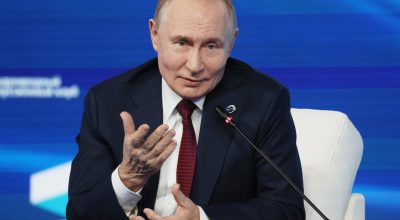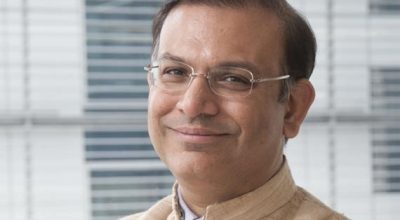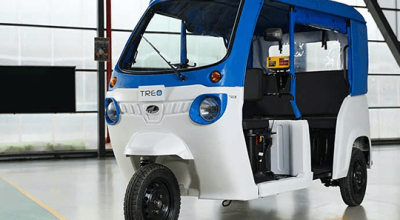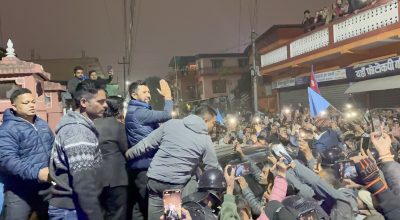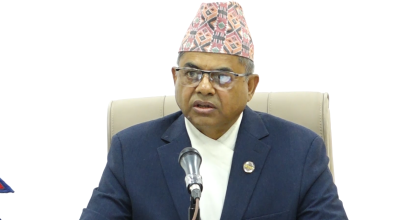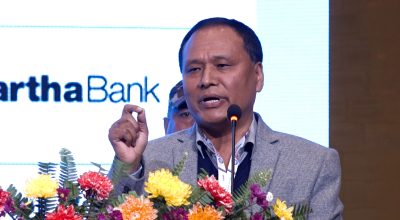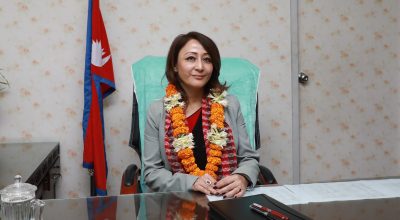
STOCKHOLM, Oct 5 (AFP) – North Korean and US officials on Saturday gathered for new nuclear talks in Stockholm after months of deadlock and Pyongyang’s defiant test of a sea-launched ballistic missile this week.
North Korea’s Kim Myong Gil and Stephen Biegun, the special envoy of US President Donald Trump, are part of the teams at the talks.
The two were to meet at a heavily guarded venue on an island off Stockholm, several hundred metres from the North Korean embassy, an AFP correspondent said.
The first cars with tinted windows started arriving just after 9:00 am (0700 GMT).
“I am encouraged that US and (North Korean) working level delegations are currently in Sweden to hold talks,” Swedish Foreign Minister Ann Lindh tweeted.
“Dialogue needed to reach denuclearization and peaceful solution.”
Similar-level talks on North Korea’s nuclear disarmament were held in Stockholm in March 2018 and then in January this year.
North Korea frequently couples diplomatic overtures with military moves as a way of maintaining pressure on negotiating partners, analysts say, and many believe this weapons system gives it added leverage.
Pyongyang tested what it called a “super-large” rocket on Wednesday just hours after it said it was willing to resume working-level talks with Washington.
Kim Myong Gil said he was “optimistic” about the talks, speaking in Beijing on his way to the Swedish capital.
Washington has been eagerly awaiting a resumption of the dialogue, which has virtually stalled after a Hanoi meeting in late February between Trump and North Korean leader Kim Jong Un.
North Korea claimed to have entered a new phase in its defence capability with Wednesday’s test of a submarine-launched ballistic missile — the most provocative since Pyongyang began a dialogue with Washington in 2018.
The Pentagon said Thursday the missile seems to have been launched from a “sea-based platform” and not a submarine.
Trump has said he sees no problem with a string of short-range rocket tests conducted previously by North Korea, while insisting his personal ties with the North’s leader remain good.
– ‘New phase’ –
Photos carried by Pyongyang’s official Rodong Sinmun newspaper showed a black and white missile emerging from the water and appearing to shoot into the sky.
The images also showed a small towing vessel next to the missile, which analysts said indicates the test was conducted from a submersible barge rather than an actual submarine, and that the system was in its early stages.
“The new-type ballistic missile was fired in vertical mode” in the waters off Wonsan Bay, the Korean Central News Agency (KCNA) reported, identifying the weapon as a Pukguksong-3 and saying it “ushered in a new phase in containing the outside forces’ threat.”
The United Nations Security Council meanwhile is expected to hold closed-door talks early next week on the latest test, diplomats said.
Those talks were requested by Britain, France and Germany, as the European powers push for the world body to keep up pressure on Pyongyang which is under heavy US and UN sanctions over its weapons program.
North Korea is banned from ballistic missile launches by Security Council resolutions.
It is also under three sets of UN sanctions adopted in 2017 in an effort to force it to give up its nuclear and ballistic weapons programmes. They limit North Korea’s oil imports and impose bans linked to its exports of coal, fish and textiles.
Since the US-North Korea talks began, Russia and China have been calling for the UN to start lifting sanctions so as to create momentum towards the North’s denuclearisation. But the United States has refused.





